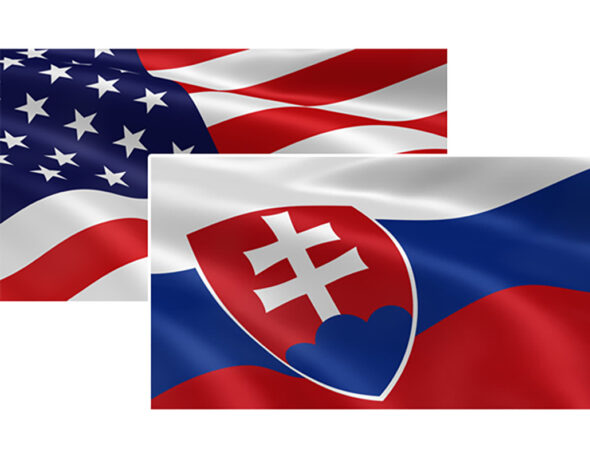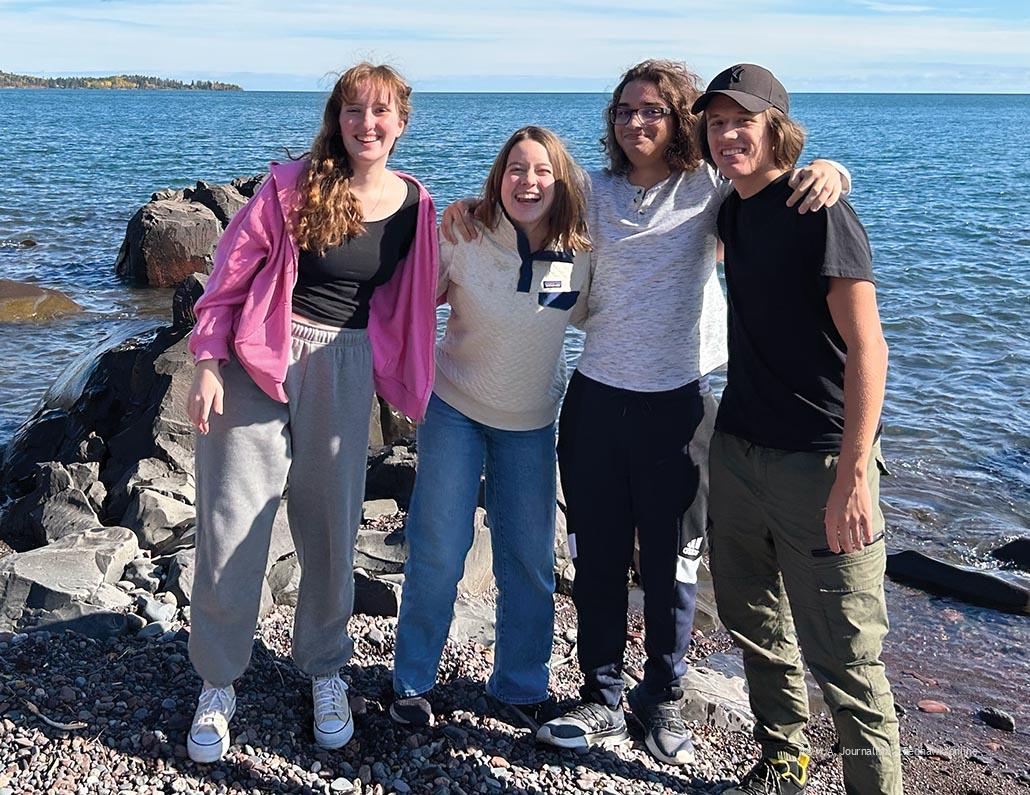Compared with life in Slovakia, American routines can be … surprising
Imagine starting a new chapter of your life in a different country in a different part of the world with a different culture and language. Immersed in this new culture, you suddenly realize that phrases or acts considered polite in your homeland can have a completely different meaning in this new part of the world. You might feel a little bit embarrassed when you realize that you forgot to give a tip to the nice lady working in a coffee shop or feel confused when you misunderstand a greeting. After nearly every interaction, you think, “Wow, another new cultural difference I have to be aware of in the future.”
For me, an exchange student from Slovakia, the past few months I have spent here have been full of surprises and cultural shocks. These shocks were not only about phrases but also about food or lifestyle.
So here are the top 5 surprising cultural differences between Slovakia and the USA:
Small talk
How are you doing? How was your day? When somebody asks me these types of questions I have to pause and figure out if they are asking me how I’m doing or if it´s a type of greeting. In Slovakia, small talk is less common. You don´t ask questions like “How are you doing” unless you are actually interested in how the person is doing.
Using a car to go everywhere
I have never spent more time in a car per month before I came to the USA. When I would like to visit my friend in Slovakia who lives one hour away, I would think, “No problem, I will just hop on a bus or train,” but here you have to own a car if you want to get anywhere further away.
I remember when my host parents told me: Your host sister will be driving you to school. As they said that I remember thinking with surprise, “Wait, isn’t she only 16?” To see a bunch of 16 year olds driving to school on their own every single day was quite shocking, because in Slovakia you have to be at least 18 years-old to drive a car on your own.
Wearing sweatpants and pajamas to school
At my school in Slovakia , every single day is a fashion show. People there are not scared to be extravagant and wear fancy clothing every day. It is rare to see kids in sweatpants, and such attire is often considered inappropriate or not fashionable. Every once in a while, we have special days in schools when you can wear pajamas, but that would be the only time you would see pajamas at school.
, every single day is a fashion show. People there are not scared to be extravagant and wear fancy clothing every day. It is rare to see kids in sweatpants, and such attire is often considered inappropriate or not fashionable. Every once in a while, we have special days in schools when you can wear pajamas, but that would be the only time you would see pajamas at school.
Friendliness vs. politeness
When I went to a U.S. pharmacy for the first time I was taken aback at how nice the workers were. They were smiling, and they were genuinely friendly. Don´t misunderstand me, Slovakians are nice and friendly as well, but they don´t show their friendliness to strangers right away.
The difference between Slovaks and Americans is that Americans are more friendly, but Slovaks are more polite. Slovakia has a strong culture of respecting older people, teachers or people with higher social positions.
For example, in contrast with the U.S., in Slovak schools, we use formal Slovak language to talk with teachers, older people or strangers. It would be considered extremely inappropriate if you would talk with teachers with informal Slovak if they didn’t give you their permission. You can see this cultural difference in just a basic act as holding doors for somebody else. This little act of politeness is more common in Slovakia than in the USA.
Diversity of cultures and ethnicities
In Slovakia, most foreigners are from other Slavic countries that share similar languages and cultures, or from other European countries. It was captivating to suddenly be in an environment where you have people from all around the world sharing their unique culture.
For example, in my friend group at M.A. I have friends whose family came from South Asia, Northeastern Africa, and Scandinavia, and just in this small friend group, I see more diversity than in my whole C.S. Lewis school back in Slovakia.
When I asked my M.A. classmates about their families, most of them told me that their families were from this-and-this country and this-and-this continent. However, if you ask the same question to Slovaks, there is a high probability they will say that their family is from Slovakia or another Slavic country.
One of my favorite things about the USA is that it celebrates and learns about the diversity of its population during different holidays. For example, I had heard of Día de los Muertos on social media or in movies before, but I didn’t understand the whole thought behind it, so when we were talking about it in chapel I was extremely happy to finally learn more about this holiday.
Just walking down a street and seeing so many stores and restaurants with different ethnic foods and goods can be for some people more enriching than seeing multicultural themes only in movies or books. I personally think that staying in the USA for a few months has helped me to look outside of my bubble where I mostly saw Slavic culture and understand how different cultures can have an impact on people’s points of view. I have never seen more diversity before, and I will miss it when I go back to Slovakia.
The months I have spent here were full of new experiences and full of cultural shocks that were mostly positive. It is crazy how much you can learn and how much your perspective on the world can change just by living in a different country for a few months.

